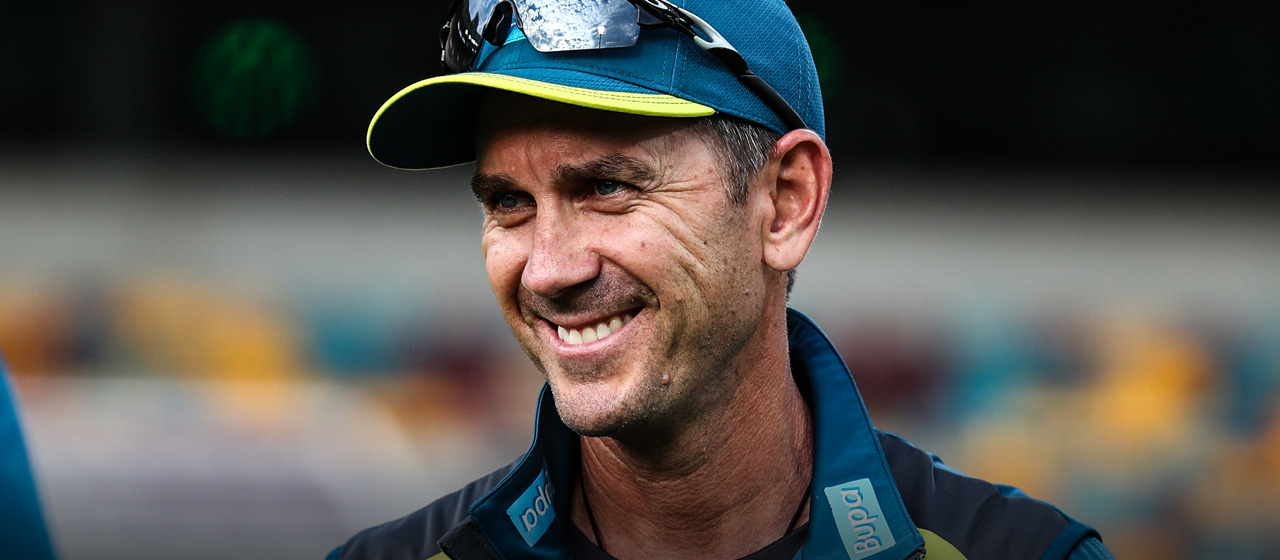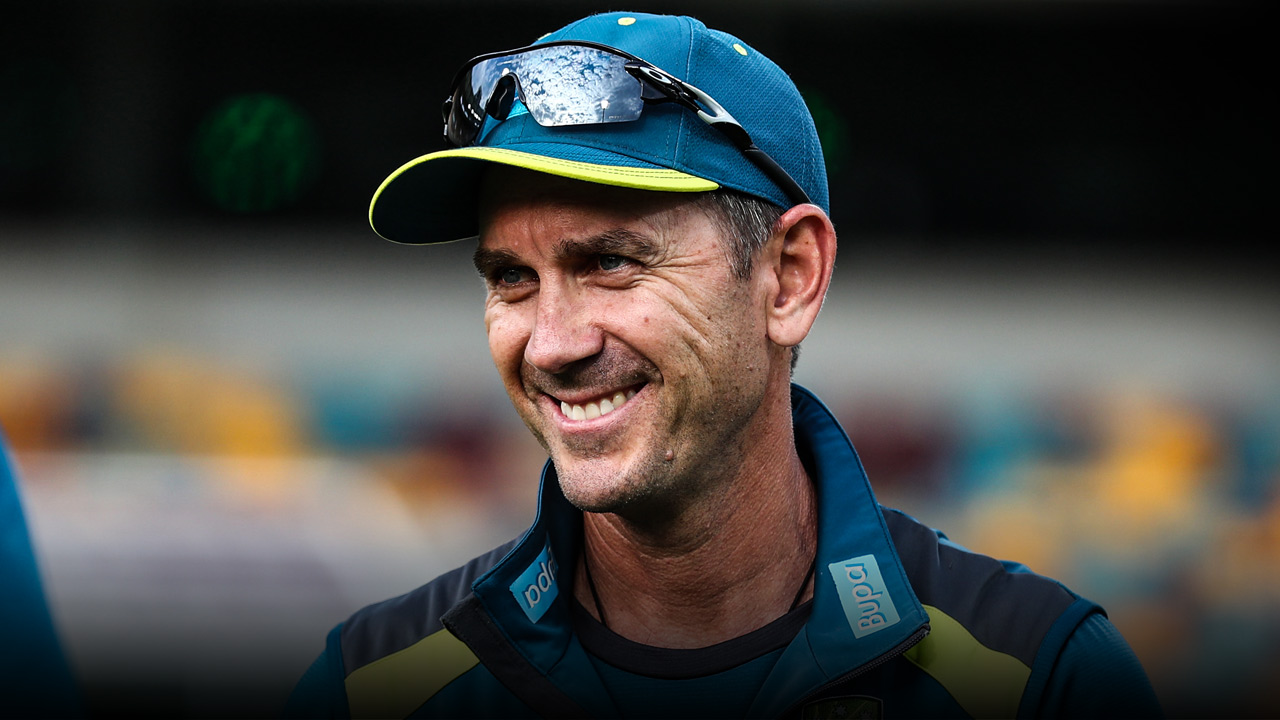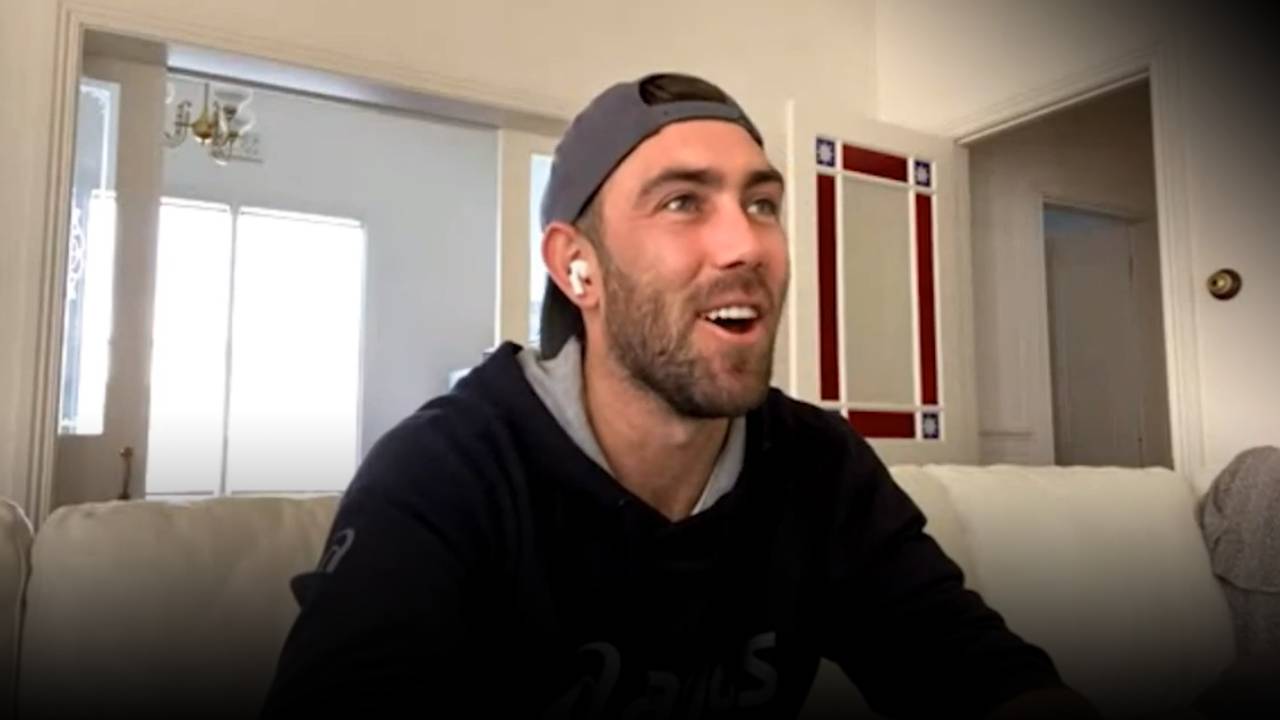Cricket
‘Champions don’t make those errors’
This is an extract from For Cap and Country: Interviews with Australian Cricketers on the Enduring Spirit of the Baggy Green by Jesse Hogan, Simon Auteri and Andrew Faulkner. Published by HarperCollins and now available in all good bookstores and online.
You hear it all the time: ‘The 2005 Ashes was the best Test series ever.’ It had it all: drama, pathos, redemption. England’s 2–1 win, its first Ashes triumph in 18 years, was the game’s high-water mark.
Rubbish, says Justin Langer, the man who scored the most runs for Australia in the series.
Why doesn’t he think this was the best Ashes ever?
‘Because we lost!’
Langer liked winning. He was used to it. As a bulwark of Australia’s golden era, Langer won far more Tests than he lost, playing in only 17 losses in his 105 Tests. In the last four years of his career, he never played in a losing Test at home.
But in 2018, after he was appointed as the head coach of Australia in the wake of the ball-tampering scandal and handed a broken side, minus suspended captain Steve Smith and star opener David Warner, Langer had to learn how to lose. He had a distasteful dose of that in his first series at the helm – when England beat Australia 5–0 in the ODI series in June that year. How Langer would set about resurrecting Australia’s fortunes was a fascinating sequel to the scandal.
Pick the eyes out of Langer’s career, and you get a distillation of the Langer way. You can’t make runs in the change room. Learn from your losses. Don’t write off senior players. Challenge your players. Get the job done. One ball at a time. Once all the constituent parts are in place, the little things become big things.
And you start winning.
‘Winning is like an addiction. It’s like taking drugs – I imagine – or the punt for someone who is addicted to gambling,’ Langer says.
‘When you know how good it feels to win, it actually makes the losses even worse.’ In fact, Langer would feel physically sick after a loss – which fortunately wasn’t too often.
‘When we were winning, all we heard was “Oh, there’s no competition”, but we were competitive animals who wanted to win everything. I got it after I stepped away, that you want to see competition – you don’t want to see one-sided events in any sport.’
He might have got it, but that didn’t mean he had to agree with it. And with Australia losing its first two-Test series under Langer, perhaps he has since learned to become even more pragmatic about winning and losing.

The harsh, burning light
Cricket is imbued in Langer like sweat in a baggy green. When he was a child, his father, Colin, would have his whole team around for a Sunday-morning road run, followed by a barbie and beers. ‘Growing up, that was always our Sunday morning,’ Langer says.
His World Series Cricket-playing uncle Rob captivated him with tales from the dressing room. ‘He used to talk about playing against Viv Richards, about how [Richards would] be super fit.
‘I always used to have this image of Viv from my uncle, walking around the change rooms with a towel around him, shirt off and a cigar and a drink. Even from a young age, I used to think that was what it’s about.’
After attending the Adelaide cricket academy with Shane Warne, Damien Martyn and Greg Blewett, Langer debuted for WA in 1991/92, a month after he turned 21. The scorecard from that game is a who’s who of Australian cricket in the ’90s: Dean Jones made a double-hundred, Darren Lehmann batted at four for the Vics and 20-year-old Martyn made 60 in WA’s first innings. Langer made 59 in the first and 18 in the second. Caught Darren Berry, bowled James Sutherland. He’d seen off Merv Hughes and Damien Fleming only to fall to the CEO-in-waiting.
When Langer made his maiden ton – 131 off 376 balls at the Gabba – in his first season, he learned a lesson about the spotlight’s harsh, burning light.
‘Robert Craddock wrote an article – and for a long time I didn’t like Robert Craddock because of it – that basically said I had no talent. I was only a kid so I’d never had that experience of the media. I thought, “I’ve just got a hundred here.”’
The press weren’t the only ones dishing out criticism. ‘Greg Ritchie was at bat-pad … I didn’t realise you could have sledging like it. But I was so determined … because I knew I could probably punch out Greg Ritchie if we were off the field. I was really angry with that.’
A counterpoint came in the Shield final. Langer made a matchwinning 149 after WA had lost Mike Veletta, Geoff Marsh and Tom Moody to be 3-3.
‘That was a moment I got great confidence from. Phil Wilkins wrote an article the opposite of what Robert Craddock had written, basically saying I could play Test cricket.’

‘Test cricket will never get harder than this’
In personnel terms, that WA Shield team closely resembled the Australian side, with the old heads of Marsh, Veletta, Wayne Andrews, Tim Zoehrer, Terry Alderman and Bruce Reid counterbalanced with emerging stars. This forged in Langer’s mind a theory about getting the experience/youth balance right.
‘It has actually formed the basis of a lot of my coaching … you’ve got to have senior players. In that game we had all Test players, and Damien Martyn, Brendon Julian, Jo Angel and myself: four kids and seven or eight international pros. I’ve kept that philosophy all the way through as much as I can.’
He learned another precious lesson in that final, as he and Zoehrer batted WA back into the match. Take it one ball at a time, Zoehrer said.
Which was exactly what Langer did in his Test debut against the West Indies at Adelaide Oval the following season. You had to, against the express pace of Curtly Ambrose, Courtney Walsh and Ian Bishop. Called up when Martyn was accidentally poked in the eye by coach Bob Simpson in a training mishap, Langer defied the Windies’ pacemen for 225 deliveries across his two innings. Australia lost by a run, but Langer gained the admiration of a nation.
It was brutal from the outset. When Mark Taylor fell late on day one, Langer joined David Boon at a crease enveloped by close fielders. He was struck first ball by Bishop, but made it to stumps. As they walked off, Boon said: ‘Test cricket will never, ever get harder than this.’
At the time, Langer thought Boon was just ‘being nice … but Test cricket never got harder than that’.

Two calls from Dennis Lillee
You learn more from your losses, and Langer learned plenty from that famous defeat. ‘I remember how much it hurt Allan Border, because he’d achieved everything in the game except beating the West Indies.’
Disappointment is also a great teacher – although perhaps ‘despair’ is a more appropriate word to describe how he felt when he was overlooked for the 1993 Ashes. The day before the squad was announced, Dennis Lillee rang Colin Langer to say he’d heard his son had made the cut. But, as the saying goes, pride comes before a fall.
‘We were all high-fiving that I’m in,’ Langer says. ‘I went to the gym and got back about two hours later and my old man had this look on his face.’
The crestfallen face eventually spoke: ‘Dennis has just rung me. He had it wrong. You haven’t been selected.’
‘That was devastating at the time,’ says Langer. ‘That was when Rod Marsh rang me and … gave me the advice that it’s not how long you bat for but how many runs you score.’
Rather than sulk and stew, Langer embraced the advice to spend most of the winter working out ways to score.
‘The perception was I changed my game in 2001 when I opened, but I reckon I changed my game in 1993. I had great mentoring from Rod Marsh to encourage that.’
It was a long way back. He played three Tests in the next five and a half years as the Australians muscled into their dominant era. All the while, he continued to develop more of an attacking game, all built from a firm base. As Chris Rogers tells the young Australian batsmen in his role as a Cricket Australia batting coach, before you attack, you need to know how to defend.
‘There’s one fact of life I know: you can’t make runs from the change room,’ Langer says. ‘As a youngster, I learned how to concentrate and fight, and not get out. Over time, I learned how to develop my game with some more attacking shots. [But] I’m glad I learned how to face 300 balls early. I used to practise that, so it wasn’t foreign when you were out there batting for more than two hours.’

‘Stop reading your shit’
Langer made three hundreds in the 17 Tests after his recall in 1998. Today that would be more than enough for a batsman to comfortably retain their place in the side. But such was the depth of Australian batting talent at the time, he was under pressure going into the second Test against Pakistan in Hobart in November 1999.
Before the match, skipper Steve Waugh pulled him aside at the team hotel and said: ‘I know you’re worried about what the press are saying about your position in the team, but I want you in the team, your teammates want you in the team, and the selectors want you in the team. You’re the best No. 3 in Australia – let’s see what you’ve got.’
Waugh was asked at a press conference about whether he had any advice for Langer, given the latter’s poor form.
‘Stop reading your shit,’ the skipper replied.
More about: Ashes | Australian cricket team | Baggy green | Coaching | Justin Langer | Pont | Sheffield Shield | Steve Waugh | Test cricket | Western Australia cricket






 Load More
Load More